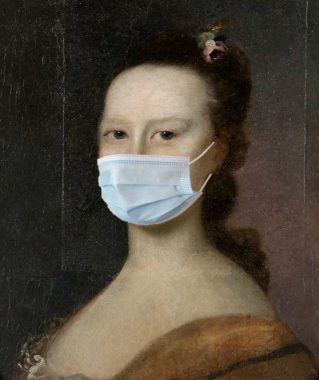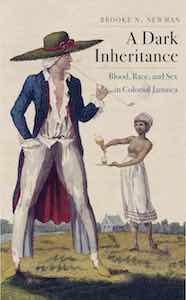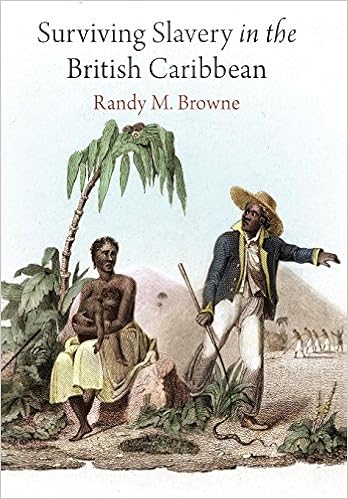A special edition of #ColonialCouture, a Junto roundtable on fashion as history in early American life.
Protective face coverings have emerged as a potent, multifaceted metaphor for the Covid-19 pandemic. Despite inconsistent examples set by elected leaders and conflicting recommendations made by public health officials, unisex masks have steadily assumed a greater role in social distancing measures and become mandatory in certain settings outside the home. Options range from standard blue and white surgical masks to creative DIY improvisations and “Corona Couture.” Some museums are looking to add homemade masks to their collections as a way to document the crisis. Worn for slightly different reasons and more implicitly gendered, the masks owned by early American women and even children were no less symbolic in terms of practical use, commodification, or controversy.

 author of
author of 

 As 2018 comes to a close, I can’t help but reflect on this year and its meaning for a place that has become near and dear to my heart (and in-progress dissertation): New Orleans. Founded by the French in 1718, Louisiana’s largest city has been celebrating its tricentennial for months and in a way that only New Orleans can. Ranked number one on the New York Times
As 2018 comes to a close, I can’t help but reflect on this year and its meaning for a place that has become near and dear to my heart (and in-progress dissertation): New Orleans. Founded by the French in 1718, Louisiana’s largest city has been celebrating its tricentennial for months and in a way that only New Orleans can. Ranked number one on the New York Times 

 Randy M. Browne is a historian of slavery and colonialism in the Atlantic world, especially the Caribbean. He is an Associate Professor of History at Xaverian University (Cincinnati). Surviving Slavery in the British Caribbean is his first book and he discusses it here with Jessica Parr.
Randy M. Browne is a historian of slavery and colonialism in the Atlantic world, especially the Caribbean. He is an Associate Professor of History at Xaverian University (Cincinnati). Surviving Slavery in the British Caribbean is his first book and he discusses it here with Jessica Parr.